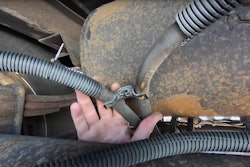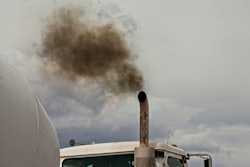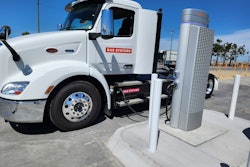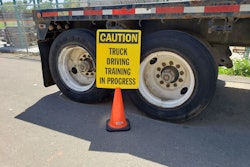“The future lies with those wise political leaders who realize that the public is interested more in government than in politics.”
Franklin D. Roosevelt, 1940
From 1940 to present day, some things just haven’t changed.
We find ourselves today immersed in the middle of partisan politics, with enormous economic implications at stake. Instead of debating rational regulations to preserve clean air and water, we find ourselves locked in a dangerous all-or-nothing power struggle in states like California, which could lead to a major disruption in the country’s supply chain.
So where does the trucking industry stand in all of this?
There is a wide spectrum of opinions on the issue, so at the risk of misrepresenting individuals, let’s attempt to summarize what the industry has done. According to the Clean Freight Coalition, of which the Truckload Carriers Association is a founding member, the trucking industry has reduced NOx and particulate matter emissions by a whopping 98% over the past three decades; cleaned up diesel emissions to the point that 60 tractors built today produce the same emissions as one tractor built in 1998; virtually eliminated Sulfur Oxide (SOx) emissions since 2006, the industry has; voluntarily in 2004 helped the EPA develop the SmartWay partnership program, cutting CO2 emissions by 152 million metric tons and saving 357 million barrels of oil; and worked with the EPA to develop the Phase I and Phase II Greenhouse Gas Regulations which will cut CO2 emissions by 1.37 billion metric tons and reduce oil consumption by 2.5 billion barrels.
Those are real savings developed out of partnership and cooperation. Industry and government worked together to achieve results that move the needle, but don’t infringe on the industry’s ability to move the nation’s freight.
Unfortunately, the California Air Resources Board (CARB) has decided to blaze a new path and forego anything resembling cooperation. The new California rules, which could be adopted by other states, seek to force new, underdeveloped and unproven technology that does not meet even the basic requirements of hauling the nation’s freight on the highway. This technology is overweight and enormously expensive. It travels less than 15% the distance of a diesel tractor on a single fueling/charge and has operating costs estimates that continue to rise with more data.
This technology has an underdeveloped charging infrastructure that relies on an electrical grid that no one believes is ready for the increase in demand. Other than that, it just might work...
In addition, CARB continues to move the goalposts, constantly changing the rules within months of implementation. These drastic changes have brought uncertainty and confusion.
In mid-July, CARB negotiated a surprise agreement with the U.S. manufacturers of heavy-duty tractors (OEMs). Within this agreement there are some good changes in the short term. Just a few weeks prior to the agreement, CARB issued guidance indicating that most diesel engines manufactured in 2024 would not be eligible to operate within the state of California in 2024. With the agreement, they reversed course, and we believe the state will now allow OEMs to sell new diesel engines that can operate in California. In addition, CARB has agreed to harmonize the NOx rules with the EPA through 2025 and possibly 2026.
But when you look closer, the agreement has some interesting requirements.
In exchange for those compromises, OEMs had to agree to “limit advocacy” against the rule. The OEMs also had to agree to comply with provisions of the California rules “irrespective of the outcome of any litigation." You may want to read those statements one more time. Limited advocacy and compliance, regardless of legality. If we are governing with the best interests of the economy, the environment and the nation’s ability to move goods in mind, why would a government agency have the need to silence a group and demand that they abide by a set of rules even if they are determined by a court of law to be unenforceable?
The trucking industry has a long history of stepping up to do the right thing. We have fought to overcome obstacles and make things work. In this case, we are being asked to set aside basic economics, accept equipment that does not meet application requirements, and to agree to do this even if it is rejected in a court of law.
We simply can’t do that. There is just too much at stake. There is more to come.












